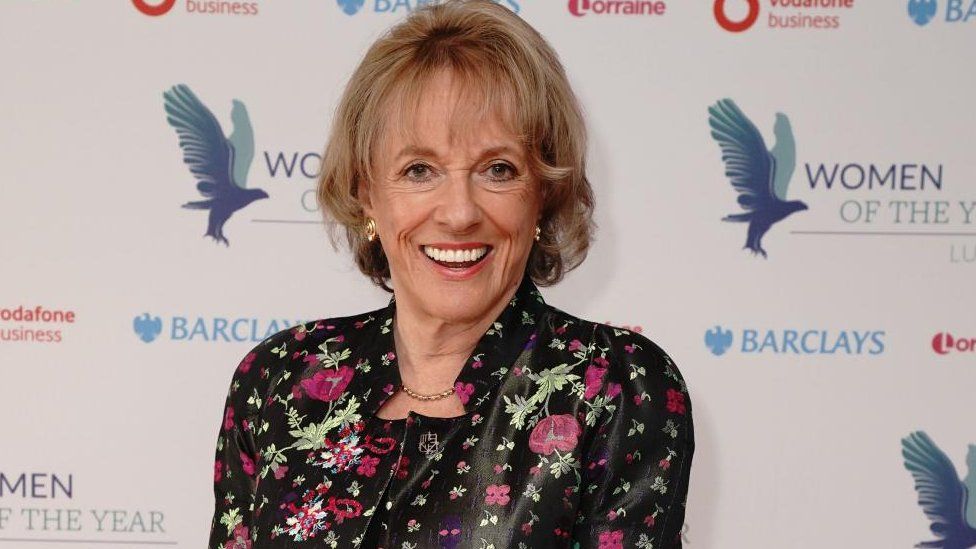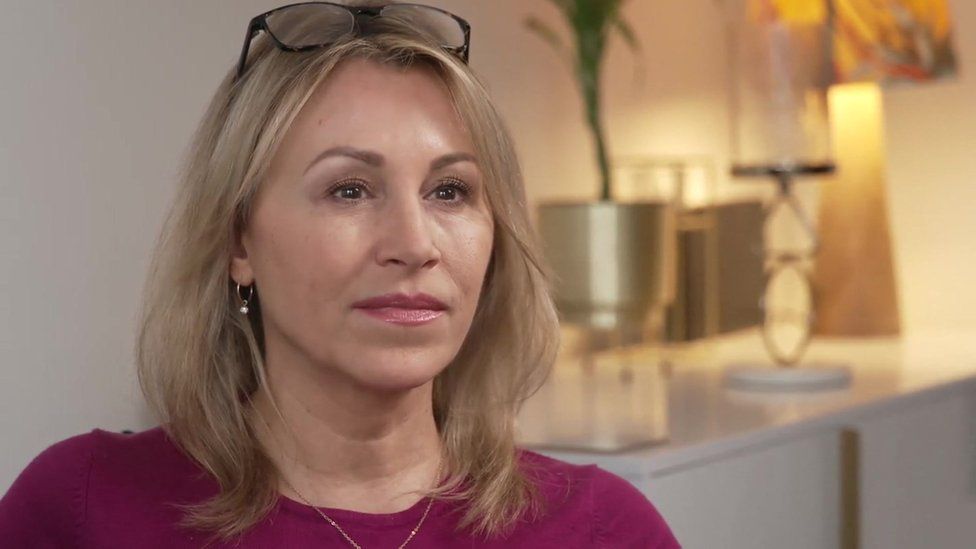Cross-party group of MPs does not back change in law, but says some countries have seen care benefit.
 Image source, PA Media
Image source, PA MediaMPs should be given the opportunity to debate and vote on assisted dying after the findings of a new report, Dame Esther Rantzen says.
The Health and Social Care Committee found evidence it has led to better end-of-life care in countries where it is allowed.
Dame Esther said this showed there is no “slippery slope” when it comes to the impact on palliative care.
But Baroness Tanni Grey-Thompson said potential coercion remained a concern.
The Commons’ committee’s review looked at places where assisted dying for the terminally ill is allowed, including parts of the US, as well as Australia, Switzerland and New Zealand.
The cross-party group of MPs did not rule on a change in the law in England, saying it only wanted to inform debate.
Despite concern a change in the law would lead to poorer support at the end of life, the committee’s report said, if anything, it was linked to improvement in the countries to have taken the step, with evidence showing the alterations resulted in extra investment in palliative care.
Dame Esther, who has stage four cancer, said the new report assuaged fears that palliative care could be damaged by introducing assisted dying.
“There isn’t the slippery slope that so many are worried about,” she said.
The report has cemented Dame Esther’s belief that a parliamentary debate and free vote should be held on the subject.
“I’m not demanding that everybody in the world agrees with me, I’m just saying let’s debate all the issues now that we’ve got international evidence and we know the public attitude is in favour,” she told BBC Radio 4’s Today programme.
The 83-year-old Childline founder and broadcaster has long campaigned in favour of assisted dying, and revealed last year that she has joined the Dignitas assisted dying clinic in Switzerland.
Dame Esther said she wanted to avoid tarnishing her family’s happy memories of her by suffering as her life draws to a close.
“The thing that motivates me greatly is having watched the deaths of loved ones around me and seen how memories of a bad death obliterate happy memories and become very painful for those involved,” she said.
Current laws in England mean her family cannot join her in Zurich if and when she decides to take that step without facing criminal investigations.
In England and Wales, the 1961 Suicide Act makes it an offence to encourage or assist someone to take their own life.
Separate laws in Scotland and Northern Ireland prevent dying people asking for medical help to die.
Over the last eight years, more than 250 people have travelled to Dignitas to end their lives, according to the clinic.
The cross-party group of MPs behind the new report said hospices in England needed extra money as access to care was patchy.
Currently hospices only receive a third of their funding from the NHS, despite providing the majority of palliative care.
Baroness Grey-Thompson, a critic of legalising assisted dying, acknowledged the findings of the report regarding countries that allow the practice, but said she believes palliative care is a “postcode lottery” in England.
“We need to make sure people are protected,” she told BBC Breakfast.
She added further concerns that vulnerable people could be coerced into pursuing assisted dying, and that adequate safeguards were difficult to place.
Assisted dying was not always the “Hollywood death” that some might imagine, she said, and that complications could arise once lethal drugs enter the body.
She said she was not against a debate in parliament, and it was important to keep up the conversation about death.

‘Law change would give dying control’

Sophie Blake was diagnosed with stage four breast cancer in 2020 when she was 49. The cancer has spread to her lungs, liver, abdominal lymph nodes and pelvis and is incurable.
She has always supported people’s choice to end their lives after seeing friends and family die in pain.
“I always thought that’s so cruel, why would we subject people to end up in so much untreatable pain when the meds can’t even touch the sides because we’re not allowed to help them [end their lives]?”
Since her diagnosis, Sophie says she is hoping for the best, while preparing for the worst. A priority for her is that her 16-year-old daughter Maya does not see her suffer.
“I don’t want that to be her lasting memories, seeing her mum in horrendous pain,” she says.
Sophie says knowing there was a choice to end life would help many terminal patients.
“So many people would benefit psychologically knowing that there would be a form of help when the time comes if needed,” she said.
“It would give you that final control at the very end, to have a good death rather than a death of suffering.”

The committee also highlighted problems and confusion with the way the current system works for doctors, saying it was not clear whether they could provide medical evidence for people who wanted to go abroad to die.
Guidance from the General Medical Council says providing access to patient records is allowable under the Data Protection Act.
But the British Medical Association (BMA) advises doctors against producing medical reports to facilitate assisted suicide.
It also said the government needed to consider how it would handle changes in the law in places such as the Isle of Man and Jersey, which are currently considering the issue.
Select Committee chairman Steve Brine said he wanted the report to have a “lasting legacy” by providing evidence for future debates on the law.
But he said assisted dying was the “most complex” issue at which the committee had looked.
The report pointed out that even what term to use is contested, with the committee referring to it as assisted dying/assisted suicide. It defined this as doctor-assisted deaths, including self-administration of a lethal drug as well as where the doctor gives it, which is often referred to as euthanasia.
Both the BMA and Royal College of Nursing have neutral positions on assisted dying.
The government says any change is a matter for Parliament – and has indicated it would allow a free vote on it.
Numerous attempts have been made to alter the law over the years – the most recent in 2021.
The law has also been challenged in the courts, with a number of people with terminal and life-limiting illnesses putting their case for a right to die.
Dr Gordon Macdonald, of anti-assisted dying campaign group Care Not Killing, said he was disappointed the committee did not come out against assisted dying.
He said he believed there were “many problems” with changing the law, including that limits on who qualifies could in time be lifted to include people with disabilities, those with non-terminal health conditions and problems such as dementia and depression.
The MPs should have “firmly shut the door” on “state-sanctioned killing”, he added.